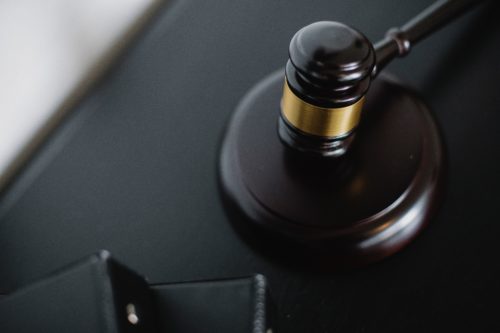
A university sexual misconduct case is a complex and emotionally charged process. For both the accuser and the accused, understanding the process universities use to decide these cases is crucial. Read on and reach out to our student sexual misconduct lawyers to learn about how universities handle these cases, what procedural rights you may have, and why due process plays such a pivotal role in ensuring justice.
What Are My Rights in the Context of a University Sexual Misconduct Case?
If you are a student facing a sexual misconduct allegation on campus, it’s critical to understand the different kinds of rights you may have. Students at public universities have constitutional due process rights. “Due process” refers to the legal requirement that the government—which includes public universities—must provide someone with a fair process before expelling them from school or imposing a lengthy suspension. While the exact requirements of due process in the university setting vary by location, it generally includes both notice of the allegations and a meaningful opportunity to respond, but may also include things like a live hearing and cross-examination.
While the constitutional right to due process only applies to students (and tenured faculty) at public universities, many private universities promise fair procedures similar to those required by due process. So, if a university’s procedure for sexual misconduct cases provides that students are entitled to a live hearing, the university must provide this hearing in order to comply with its contractual obligations.
Further, universities (both public and private) that receive federal funding are bound by Title IX regulations, which mandate how they handle sexual misconduct cases. Title IX requires schools to take immediate action to eliminate harassment, prevent its recurrence, and address its effects. However, the rights of the accused—such as the right to be informed of the charges, the right to present evidence, and the right to a fair and unbiased process—are also protected by the Title IX regulations.
How Are Due Process Rights Implemented in University Investigations?
When a sexual misconduct complaint is filed at a university, procedural protections kick in right away. Typically, universities must first conduct an investigation, which includes interviewing witnesses, collecting evidence, and obtaining statements from both parties. A fundamental part of due process is ensuring that the accused is given proper notice of the allegations against them. Without this, the accused cannot adequately prepare their defense.
In sexual misconduct cases, universities are also required by law to allow students to have an advisor of their choice – which may be an attorney — present during the investigation. This ensures that the accused understands the procedures and their rights. Additionally, the accused must have the opportunity to respond to the allegations, provide evidence, and challenge the evidence presented against them.
Why Are Procedural Protections So Important?
The consequences of a university sexual misconduct decision can be life-changing. Sanctions may range from suspension or expulsion to a permanent mark on the student’s academic record. These outcomes can impact future educational opportunities, employment prospects, and personal relationships. Therefore, it’s critical that universities uphold due process principles to avoid unfair or unjust decisions.
A fair process ensures that students are not unjustly punished without proper evidence or the chance to defend themselves. However, it’s also important to recognize that due process protects not only the accused but also the integrity of the university’s judicial process. If students believe that investigations are biased or unfair, trust in the institution erodes. Without a fair process, the risk of wrongful accusations or unjust penalties increases, creating a system where neither party feels truly heard or represented.